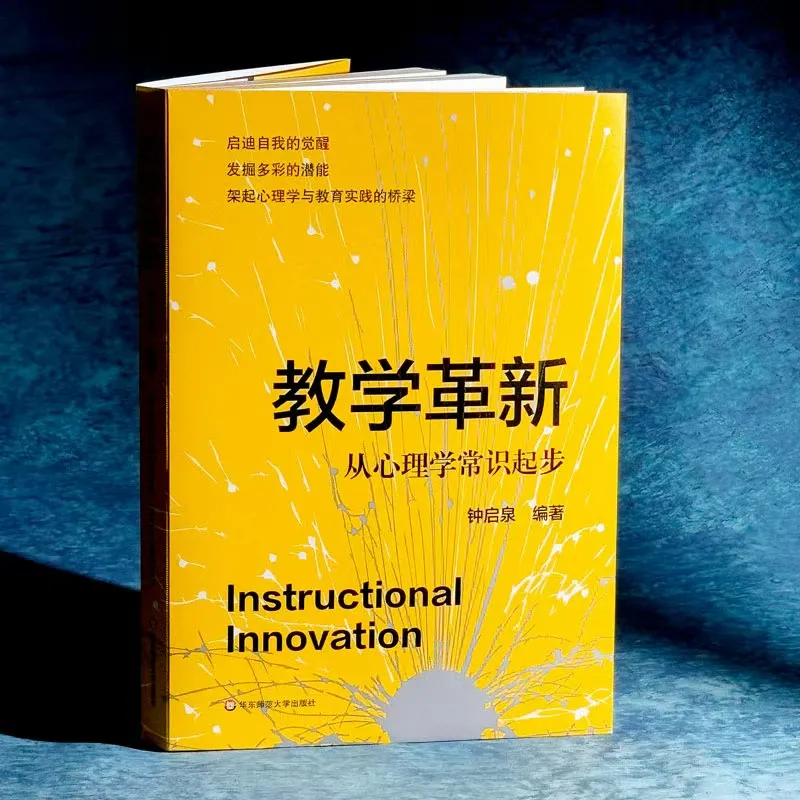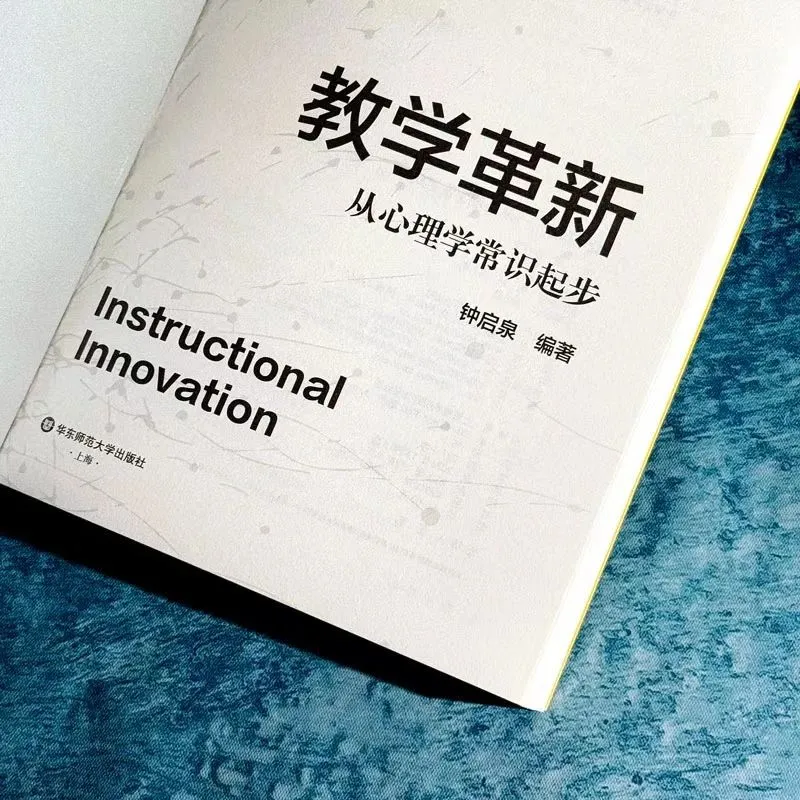ICI Academics║Professor Zhong Qiquan Publishes a Groundbreaking Book on Instructional Reform
2025-03-24

In March 2025, Professor Zhong Qiquan, Honorary Director of the Institute of Curriculum and Instruction at East China Normal University (ECNU), released his latest book, Instructional Reform: Starting with Psychological Common Sense, published by ECNU Press.
About the Author

Zhong Qiquan is a Distinguished Professor at ECNU and Honorary Director of its Institute of Curriculum and Instruction.
Book Overview
Instructional Reform: Starting with Psychological Common Sense advocates for a fundamental shift in teachers’ pedagogical stance, moving from a teacher-centered to a student-centered approach. Zhong argues that teachers must attune themselves to students’ authentic, self-expressed voices—those striving for higher achievement—to elevate their practice to the level of student-centered teaching.
Therefore, there are three critical challenges for teachers:
Student-Centered Teaching: Prioritizing students’ needs and agency.
Evidence-Based Teaching: Grounding instruction in scientific evidence.
Teacher-Learning-Based Teaching: Fostering continuous professional growth.
Zhong emphasizes that high-quality education begins with the “warmth” of human connection. Psychological insights, supported by scientific evidence, are essential for sustaining this warmth, forming the bedrock of teacher development and school improvement. This focus on psychological foundations is positioned as a cornerstone of general education in teacher training institutions.

“Learning” is the self-transformation and self-renewal of children. Zhong critiques the distortions of exam-driven education, which disconnects schooling from future societal needs and obscures the true nature of learning. He redefines learning as a process of experiential reconstruction, where teachers facilitate children’s autonomous learning through skillful and wise interventions, supporting their journey toward self-transformation and well-being. In modern society, learning transcends traditional boundaries, occurring anytime, anywhere, and shared through digital networks.
The rise of the network society has diminished traditional learning paradigms, challenging the primacy of knowledge transmission in schools. Concepts like “key competencies” and “core literacies” signal a shift beyond conventional academic frameworks, emphasizing abilities to engage with the world, collaborate with diverse others, and thrive autonomously. These abilities—interacting richly with the world—pose some key challenges for teachers:

Transforming the Concept of Ability: The 21st century’s “core literacies” extend beyond cognitive skills to encompass holistic human capacities, including tacit abilities. This shift demands a pedagogical move from accumulating knowledge to fostering practical competencies, such as collaborating with others and solving complex problems.
Redefining Learning: Traditional views of learning as knowledge acquisition are overly narrow. Zhong, drawing on constructivism, redefines learning as a social practice where learners construct meaning through interactions. Quoting Sato Manabu, Zhong likens learning to a journey of encountering new worlds, others, and oneself through dialogues with the objective world, others, and the self. This reconceptualization dismantles the notion that learning depends solely on teachers, textbooks, or classrooms.

Creating Competency-Based Teaching: Achieving “deep learning” through subjective and dialogic approaches is essential for competency-based classrooms. Contemporary learning science highlights three insights: children bring rich prior knowledge to class, learning emerges in specific contexts, and learners must recognize the purpose of learning to integrate knowledge. These insights underpin strategies like “meaningful learning,” “authentic learning,” and “explicit guidance,” which aim to cultivate problem-solvers capable of navigating unknown terrains.
Teaching Reform underscores the need for a student-centered paradigm, urging teachers to listen to students’ inner voices to foster autonomous, meaningful learning. This book is a vital resource for educators seeking to align teaching with the demands of a rapidly changing world.
Excerpted from the Introduction to Teaching Reform: Starting with Psychological Common Sense.